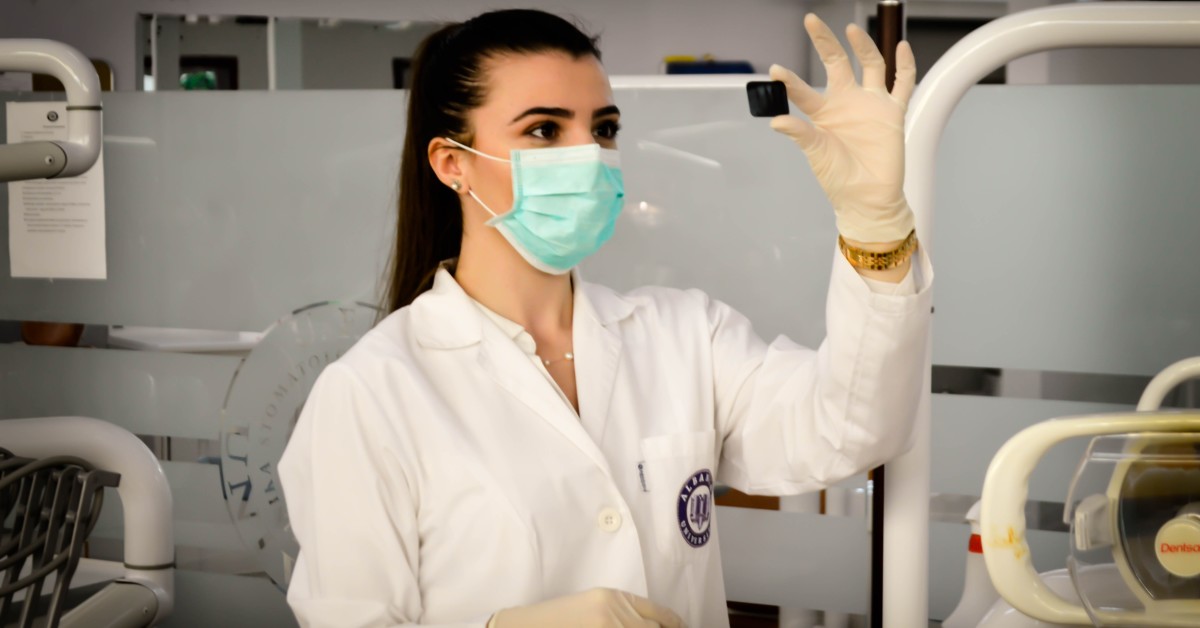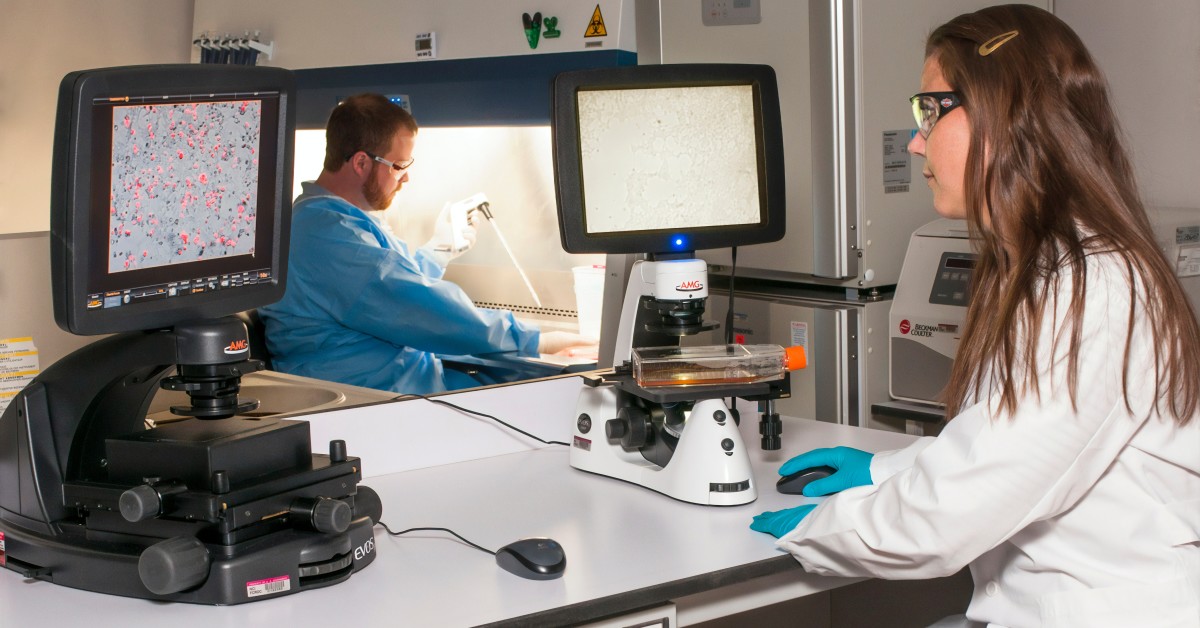
Health Informatics vs. Health Analytics [Difference Explained]
Health informatics and health analytics aren't that different,at least as [...]
![Health Informatics vs. Health Information Technology [Difference Explained]](https://resources.noodle.com/wp-content/uploads/2023/11/national-cancer-institute-NFvdKIhxYlU-unsplash-1024x536.jpg)
Healthcare data is transforming medicine, slowly but surely. The industry generates billions of gigabytes of information related to everything from patient care to pharmaceutical trials; we’re only just beginning to scratch the surface of what this data can do.
This data explosion has given rise to a whole new class of non-clinical healthcare professionals and health-focused tech disciplines. Two of them—health informatics and health IT—dominate in this new world of government-mandated electronic health records and rapidly evolving information management technology.
You can enroll in a master’s degree program in either field, so if you want to work at the intersection of medicine and computing, you’re in luck. Here’s where it gets tricky, though. There’s no shortage of Master of Science in Health Informatics programs, but there is a shortage of Master of Science in Health Information Technology programs.
Both lead to lucrative careers in informatics, data analytics, and information technology management. Because schools use different naming conventions, the informatics degree program at one might look like the health information technology program at another. We can’t summarize the content in all the MS in Health Informatics and MS in Health Information Technology programs out there, but we can break down how they typically differ and where they’re most likely to take you.
In this article, we look at health informatics vs. health information technology and cover:
Health informatics is a relatively new non-clinical healthcare discipline at the intersection of medicine and Big Data, and it’s quite broad. Informaticists are the database administrators, data analysts, and data scientists of the healthcare world, but there are lots of other informatics job titles as well.
Informaticists collect unstructured information from myriad sources—including electronic medical records, billing systems, insurance claims, and public health data—and process it so it can be used to improve outcomes and efficiency in healthcare services or guide public health. Some health informatics jobs involve not just cleaning and organizing data but also analyzing it to find insights. Only some health informatics professionals, like nursing informaticists, have medical training, but most are domain experts.
Health IT professionals, meanwhile, select, build, and maintain the tech infrastructure used to collect, store, and manage data securely in healthcare organizations. Unlike informaticists, people in health IT don’t need deep domain expertise. However, they do need to understand how rules and regulations related to patient data privacy and medical research impact data management. Given their job responsibilities, they also need to be comfortable working with the many different types of clinical information systems used by healthcare networks, insurance companies, pharmaceutical companies, and public health agencies.
Given that, choosing a degree ought to be easy. On the one hand, you have the data-focused world of informatics; on the other, there’s the systems-focused world of IT. The problem is that both the Master of Science in Health Informatics and the Master of Science in Health Information Technology can support careers in these disciplines. Looking at how the typical curricula in each line up with your interests can give you some insight into where you belong, but it’s just the first step.
Health informatics programs tend to focus on data collection, analysis, and utilization for decision-making. Health IT programs tend to focus on information technology and its utility in clinical and non-clinical healthcare fields. Some MSHI programs are highly technical, however, and some health IT cover all the same ground as informatics programs.
The University of Pittsburgh‘s School of Health and Rehabilitation Sciences has on-campus and online MS in Health Informatics programs focused on information systems, information management in healthcare settings, and data analytics. The 36-credit UPitt health informatics curriculum includes courses like:
The University of Michigan – Dearborn‘s College of Education, Health, and Human Services offers an MS in Health Information Technology program focused on information system design, security risk mitigation, and IT project management. Core courses in the program include:
Whether you specialize in informatics or health IT, it’s unlikely you’ll encounter employers who expect you to have a doctorate. Earning a PhD in Informatics or PhD in Information Technology or Information Systems is only necessary if you plan to pursue a career in academia or research.
There’s a confusing array of specialty areas in both informatics and IT, but MSHI programs are much more likely than MS in Health Information Technology programs to have concentration tracks.
Many health informatics master’s degree programs let students choose a specialization track focused on one area of this broad discipline. Concentration options vary by program, but common specializations include:
Most HIT master’s programs don’t have concentration tracks—unless, that is, you’re looking at information technology and information systems degrees with a healthcare focus. Many health information technology professionals pursue graduate degrees in IT or information systems management at colleges and universities with a healthcare or health informatics track.
MSHI and health information technology master’s programs tend to be designed for working professionals. Even programs billed as full-time tend to be flexible, with classes delivered in the evening or on weekends and asynchronous online courses. Be aware that the most flexible self-directed programs take longer to complete than lockstep on-campus programs.
The UPitt program takes 16 to 24 months to complete, which is typical for MSHI programs. Some health informatics master’s programs can be completed in one year, but 18-month pathways are much more common. Part-time students sometimes take three years to earn this degree.
For perspective, the University of Michigan’s 30-credit HIT master’s takes two to three years to complete, depending on whether students enroll full-time or part-time. Most health information technology master’s programs follow roughly the same timeline.
There are many informatics master’s programs out there, including some offered by prestigious colleges and universities. Far fewer schools offer a dedicated health information technology degree.
There are highly respected informatics master’s programs at:
There are only a handful of HIT master’s programs out there in addition to the University of Michigan’s. The University of Maryland, Baltimore has an Master’s in Health Information Technology program and the University of South Carolina – Columbia offers a Master of Health Information Technology. The University of South Carolina program is unique among the three because it is administered by the school’s College of Engineering and Computing and Arnold School of Public Health.
Again, online master’s in informatics programs are common, while there are only a handful of HIT master’s programs.
Some of the best online health informatics master’s programs are offered by:
The University of South Carolina and the University of Maryland are two of the only schools that offer MS in Health Information Technology programs online. This is because so many colleges and universities have rolled their health IT programs into their informatics programs.
The cost of health informatics programs vs. health information technology master’s programs varies widely from school to school. As you compare programs, remember that tuition isn’t the only expense you’ll have.
You’ll probably pay between $20,000 and $30,000 for an MSHI, not including books, materials, fees, and other expenses. Some programs cost upwards of $50,000, and the most expensive informatics master’s programs cost more than $75,000.
Most master’s in health information technology programs cost about as much as the average MSHI. The University of Maryland’s online Master’s in Health Information technology, for instance, costs about $20,000 for residents and $36,000 for out-of-state students. The University of Michigan’s program is more expensive, with a price tag of about $43,000.
Healthcare jobs are being created rapidly in information systems, IT, analytics, and information management.
The US Bureau of Labor Statistics (BLS) predicts jobs for health information technicians will be created twice as quickly as jobs in other sectors over the next decade. That may be because the healthcare industry is generating data more rapidly than ever before.
The outlook for health IT careers should mirror that of informatics because you can’t harness the power of health data without a stable and secure infrastructure.
There is overlap between career paths in these disciplines because informatics and health IT professionals play a role in streamlining patient information recordkeeping, making care more efficient, reducing medical errors, and improving patient outcomes.
Common roles for Master of Science in Health Information graduates include:
Some common roles in the HIT field include:
Director-level and executive roles in health informatics tend to pay the most. These include:
Many jobs in health IT pay well, but some pay very well. According to HIMSS surveys, many health IT salary jobs pay over $100,000. The highest-paying roles include:
| University and Program Name | Learn More |
|
University of Washington:
Master of Science in Information Management
|
The health informatics vs. health information technology question isn’t as hard to answer as it seems. You’ll be happiest in—and get more out of—a health informatics master’s program if you enjoy working directly with data. If, on the other hand, you prefer working behind the scenes with the kinds of systems and platforms that form the backbone of informatics, you probably belong in a master’s program focused on health information technology.
Just remember, the best IT-focused program may confer an MSHI. You need to consider that these disciplines are two sides of the same coin and wouldn’t exist without each other. There’s no right answer, just the right answer for you. The good news is you’ll be able to launch a long, lucrative career regardless of which academic pathway you choose.
Questions or feedback? Email editor@noodle.com

Health informatics and health analytics aren't that different,at least as [...]

Some schools and employers use the terms health informatics and [...]

Health informatics is sometimes called biomedical informatics, which sounds a [...]

Informatics and health information management are related healthcare disciplines that [...]

Nursing informatics is a subdiscipline of informatics that deals exclusively [...]
Categorized as: Health Informatics & Sciences, Information Technology, Nursing & Healthcare